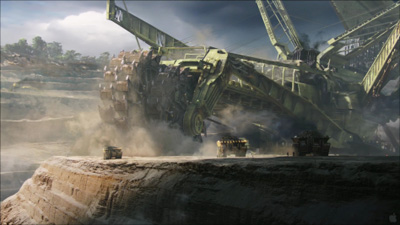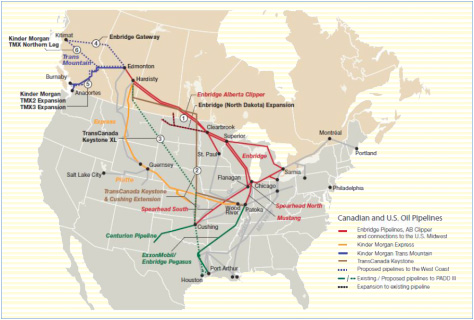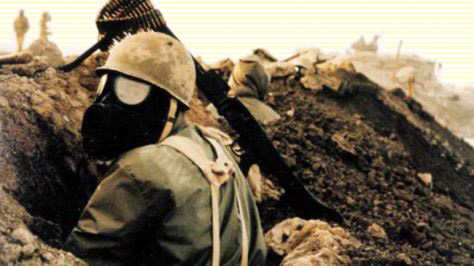by JC Collins
Philosophy of Metrics

“This is really an old lesson for a new era. At such a momentous time as this, we need to choose the ethos of 1944 over 1914. We need to rekindle the Bretton Woods spirit that has served us so well.” – Christine Lagarde, Managing Director of the I.M.F. Feb 3, 2014.
As young boys my brother and I delivered newspapers in our neighborhood. There was one house in particular that always stood out to us. In this home lived a man with no legs. The house was your standard suburban build of the 1970’s and had a ramp running up the width of the front. The man in his wheelchair would often be parked at the small area at the top of the ramp. It was a short landing from which he could enter the house.
Bad feelings always came over me every time we delivered the newspaper there. My memory tells me that the man wasn’t very nice, though I’m sure he was and that’s just how I remember it based on my own feelings of uneasiness.
When we see a man in a wheelchair we often think of war vets. In this case the man had lost his legs in a mining accident. There is a giant mining machine called a bucket wheel. It’s exactly what it sounds like, a large wheel made up of many buckets which dig into the earth as it turns. This man had the unfortunate accident of being in a pickup truck that came into contact with the mining machine.
Our father also worked at the same mine and over the years of our childhood there were many such accidents, some ending in deaths and others causing life altering trauma like the man on the porch. Fear was something I often felt as I stared out the window and watched my father walk off to catch the bus which transported all the workers to the mine site. The thought of my father being one of the men who didn’t come home was unbearable.
As dangerous as it was, my father worked hard and provided for his family. We had a good childhood. A good life. Though I didn’t understand it at the time, the world needed energy and my father helped provide it by exacting his own energy. My brother and I didn’t put out as much energy delivering newspapers because we were lazy, as children are want to be, but we would eventually get paid for what little energy we did exert. That’s how it works right, exert first and earn after.
Along with listening to ABBA songs for the better part of the early 1980’s, I also watched the endless Iraq and Iran war on television. The ability to fully comprehend what it was all about only came to me when I was much older. The concept of the petrodollar was kept out of the media at all costs. The fact that the American military would support one oil producing country to attack another oil producing country was too complex a thing to grasp while the song Waterloo spun on the record player.
For those who don’t know, the petrodollar was an agreement between the Federal Reserve and Saudi Arabia to price and sell oil in U.S. dollars. This scheme came about after the dollar was disconnected from its 30% gold peg in 1971. By 1973 the scam was on and most of the oil producing countries fell in line. Unfortunately Iran didn’t get the memo.
We’ll avoid a long history of oil shenanigans and military occupations. Please feel free to research and filter all Middle Eastern conflicts through the petrodollar smoke screen. I would include the Caspian Basin and Bosnian conflict in this as well.
Two nights ago Christine Lagarde of the International Monetary Fund was giving a speech in London. In that speech she made many references to the outdated system that has been in place since the Bretton Woods agreement of 1944. She explains how that agreement has served us well for the last 70 years but it is now time to move on with a new multilateral system, a “financial system for the 21st century”. Near the end of her talk Ms. Lagarde boldly states that a new multilateralism is “non-negotiable”.
What she is saying is that both the old Bretton Woods arrangement and by default the petrodollar scheme are dead and over. Like the British Pound before 1944, the reserve status of the American dollar is over. It’s just that American’s have not accepted it yet because the leaders of the country have not told them about it.
There are too many currency swap agreements which have been made over the last few years to even mention. The function of these swap agreements have been to avoid using the dollar in trade. The emerging economies have planned their counter to QE tapering like a general strategizing a flank maneuver. If it was not for these currency swap agreements the emerging markets would be suffering more right now.
But let us kept our eye on the moving ball here and remember the problem, reaction, solution technique we have been discussing in previous posts. Since we are suggesting that all sides are reading from the same script, I will put forward that the script is in fact the 2010 I.M.F. Code of Reforms.
The United States is the last hold out on the Reforms. The Congress has to pass the legislation in order for the 2010 Code of Reforms to be fully enacted and the required changes to the Executive Board of the I.M.F. completed. As some of you may have already guessed, and not to put too fine a point on this, the Reforms will allow for the following things to happen:
- Restructure U.S. sovereign debt. (other countries as well)
- Final payout on historical bonds.
- Revaluation of currencies.
- Preliminary SDR bond agreements.
- Soft landing for stock markets.
From there the real work will begin as SDR allocation sites are strategically located. As stated previous, the “restructured” Fed will issue SDR securities along with the World Bank, European Central Bank, and the BRICS Development Bank. There will be others but those are the core institutions.
SDR compositions for each country and economic zone will continue to be analysed and negotiated as trade shifts and settles to the new paradigm. Gold will obviously be a vital component of most SDR compositions, especially in Asia, where strategically located gold vaults are now being set up in China, Vietnam, Indonesia, etc. This was explained with more detail in “America’s Karma and World War Two Gold Theft”.
Commodities other than gold will also factor into SDR composition weights. One of these is oil. With oil comes different challenges than some of the other weights. Let’s take the relationship between the United States and Canada as an example. Oil is pumped or mined in one place and after initial processing, is shipped elsewhere for further processing for a market grade product.
This is where the Keystone XL Pipeline comes in. The purpose of the pipeline is to transport semi-processed oil from the Canadian Oil Sands to the refineries in the gulf region of America. There is much to do about nothing over this “proposed” pipeline. Just as there is about the Oil Sands in general. Why do you think this is? It’s a negotiation over what percentage of the produced oil will be applied to the SDR composition of each country. Should Canada get more for mining and partial processing? Or should America for bringing it to market?
All along, even with the delays and drama over both the pipeline and the oil sands, Keystone is in fact moving ahead with major portions of the line already completed. The so called Obama drag on this is only for show.

In addition to Keystone, Canada is also building what is called the Northern Gateway Pipeline to transport oil from Northern Alberta to the Pacific coast for shipping to the Asian market. This is why China is becoming heavily invested in Canadian oil and its related infrastructure.
Intangible SDR trading is already going on outside of the U.S. dollar. The exact same thing happened to the British Pound in the years leading up to its official demise as the reserve currency of the world.
Let’s move on to Iraq and Iran. It was reported on January 30th that Iraq and Iran where planning on joining forces and cutting world oil prices as a form of economic warfare on Saudi Arabia. The purpose is to destroy OPECs control over the world oil market. As usual, things are not as they appear. OPEC is already dead for the most part and Saudi Arabia is aligning itself with China.
This is major news that is lost on not only Americans but many other regions as well. With the shattering of OPEC who will dictate the price of oil? There are a few different exchanges which price oil and I would suspect that eventually there will be just one in order to facilitate more accurate SDR compositions for oil producing nations.
The bigger question to ask here is how do two countries that fought a war with each other for almost a decade suddenly decide that they will become the dynamic duo to fight the evil Saudi sheiks? There’s a micro problem, reaction, solution taking place here. I propose that the Middle East will be split into two economic zones with the Lower Middle East encompassing oil production from Saudi Arabia and Northern Africa, while the Upper Middle East will consolidate not only Iraq and Iran but most likely the Caspian region as well. Remember, civilizations are transformed through revolutions. There is more to the Arab Spring than many realize.
Though the world’s countries will maintain their individual autonomy, their economic sovereignty will be passed to the Executive Board of the I.M.F. under the 2010 Code of Reforms. As such, the oil produced from the economic zones will not apply directly to the individual countries SDR composition but to the regions composition. Both Iraq and Iran are oil rich in resource but the ability to bring it to market, especially in Iraq, is still fraught with challenges. The world will not wait for stability in Iraq before implementing the Code of Reforms which will in turn lead to the Global Currency Reset and the Great Consolidation.
Iraq’s currency, the Dinar, will be revalued, of that there is no doubt. But not anywhere near the exchange rate that many are predicting. Like my brother and I delivering newspapers, we could not get paid until the papers were distributed and payments collected. The dinar will not be revalued at a rate that cannot be supported by the actual production of the oil. Both Iraq and Iran are looking forward to 2020 to even come close to the barrels per day production that Saudi Arabia has now.
In addition, I would suspect that a regional dinar currency will be developed to support the economic zones SDR composition. And that is good news for many that hold dinar. It will be revalued sooner rather than later and it will offer a great return, but only as the micro of a larger macro and regional dinar scenario.
I encourage everyone reading my blog posts to educate yourself and research as much as possible. Everything we need to know in order to understand what is coming is published and available. The reset is real, as is the consolidation. The centralization of economic power is worrisome but I fear the alternative at this point in history offers a less desirable outcome. How we handle ourselves as human beings will dictate how we challenge that centralization. Do we fight as desperate and divided buffoons who are lost in the ignorance of the past? Or do we become knowledgeable and stare the system in the face and challenge it to become better?
The latter is much preferable as far as I’m concerned. And we accomplish this by challenging ourselves first. Like I wrote of in my post “The Failed Alchemical Process of America“, the failure of America is the failure of us all. The journey from base metal to gold is the responsibility of each one of us. How do we expect a system based on greed to change when we ourselves are consumed with our obsession over matter? It matters not what the I.M.F. or any other organization does. We are the solution we’ve been looking for. Exert your energy for the wealth of knowledge.
Philosophy of Metrics is the methodology of understanding the world through patterns and processes. From the ancient philosophy of primitive man to the stock market today, there is a pattern in everything and anything. We but need to observe and recognize the macro and micro of it all.
One of the biggest patterns is the one of ignorance. We are subjected daily to methods of misdirection and direct obfuscation which serve to keep us blind to the realities that surround us.
Our modest intent is to lift the fog on the mysteries and allow some of these patterns to become visible, whereby we may better understand the world and our place within it.
In the next part we will continue with the SDR compositions but also start to touch on some of the cultural ramifications of the Great Consolidation. – JC Collins
http://philosophyofmetrics.com/2014/01/21/sdrs-and-the-new-bretton-woods-part-one/
http://philosophyofmetrics.com/2014/01/23/sdrs-and-the-new-bretton-woods-part-2/
http://philosophyofmetrics.com/2014/02/04/sdrs-and-the-new-bretton-woods-part-three/
